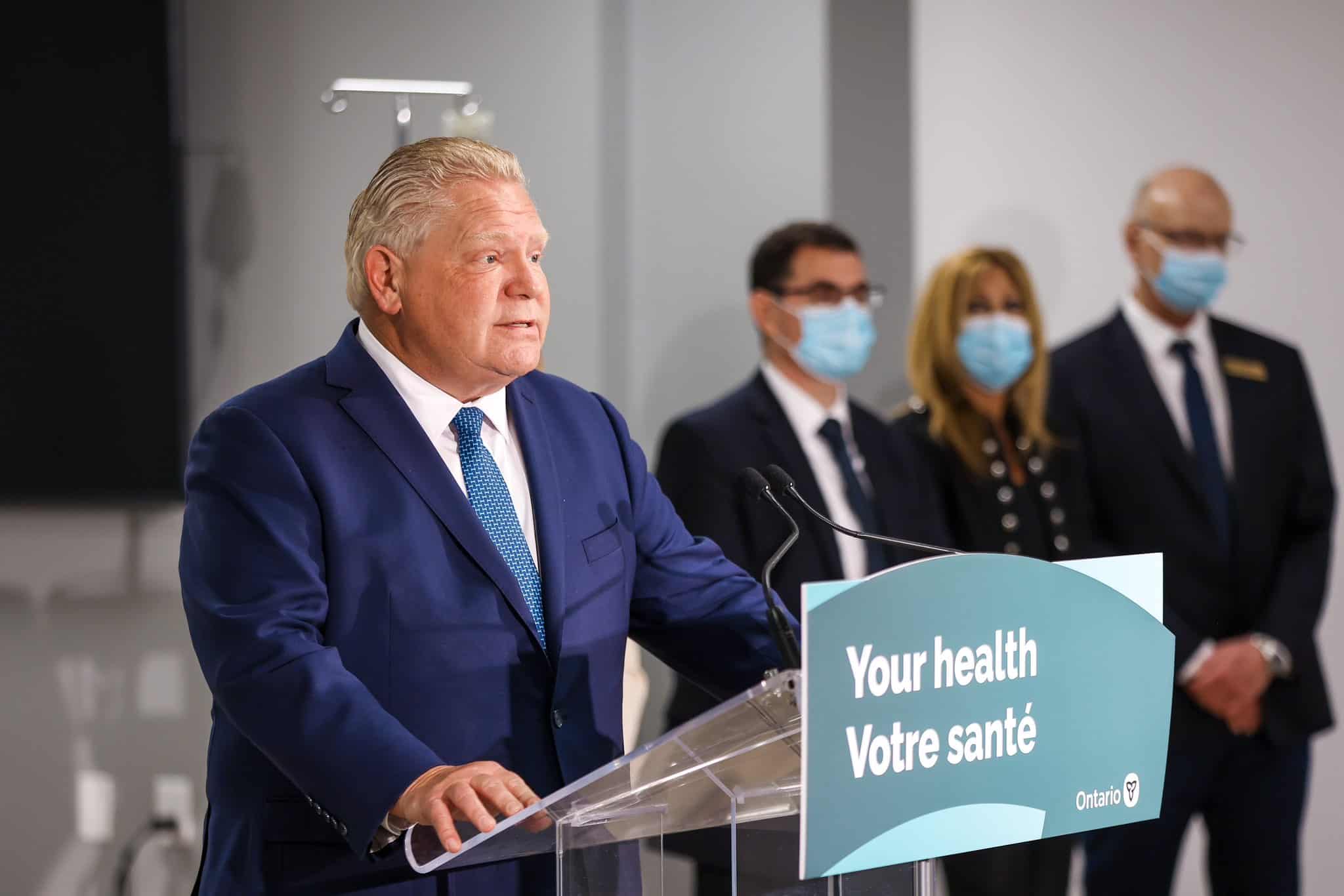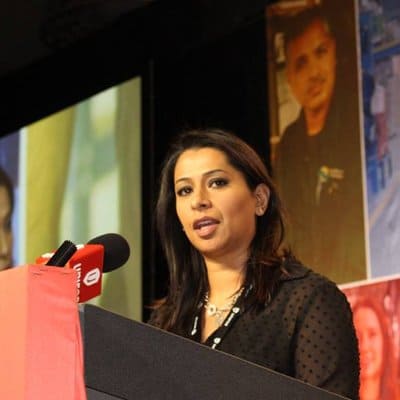Ford weakening “fragile” Ontario healthcare system – Unifor
Published January 16, 2023 at 3:04 pm

While Ontario Premier Doug Ford unveils a three-part plan to deal with a surgical backlog due to the pandemic, his government is taking heat for recent legislation – already deemed unconstitutional by the courts – that one of the biggest unions in the province says has weakened an “already fragile public healthcare system.”
Naureen Rizvi, the Ontario Regional Director for Unifor, which represents more than 18,000 members in Ontario working in health care, education and social services, also claimed that Health Minister Sylvia Jones was briefed by her senior staff on the negative effects of Bill 124 going forward, including burnout, wage disparity, as well as retention and severe staffing shortages facing the system.
Bill 124, which among other things limits public sector pay increases to one per cent per year, was struck down by the Ontario Superior Court of Justice on November 29, with the ruling declaring that the legislation “unduly infringed on workers’ rights.”
The Province has appealed the ruling.
“The Ontario government has no justification to move forward with an appeal to the court ruling that kicked this legislation to the curb for violating public sector workers’ Charter rights,” Rizvi said. “Ontarians now know the Minister has the facts about the healthcare crisis. There’s no ability on the government’s part to deny the facts any longer. The only question remains: what is the Minister going to do to fix it?”
What the government has done this week is significantly expand the role of private medical clinics for several procedures, starting with cataract operations where there is a backlog of about 55,000 patients.

Naureen Rizvi, Unifor
The health care changes will be implemented in three phases, with the first phase seeing surgical and diagnostic clinics in Kitchener-Waterloo, Ottawa and Windsor perform an extra 14,000 cataract operations each year.
Next up is MRI and CT scans, as well as ophthalmic surgeries, some gynecological surgeries and plastic surgeries. The government will also invest more than $18 million in existing centres to help cover these procedures.
The third phase, expected by 2024, will see hip and knee replacements performed at for-profit clinics.
Ford said he was proceeding with the health care delivery changes because he was “tired of the endless debate” on the subject.
“When it comes to your health, the status quo is no longer okay. That’s why we’re shortening wait times by expanding community surgical and diagnostic centres,” he said at a news conference Monday morning. “The days of endless ideological debates are over.”
Both Ford and Jones insisted the procedures will be fully covered by OHIP and while the changes were initiated by the province’s long surgery wait lists, the Premier said they will be kept in place permanently even after the backlog is cleared.
There are about 900 privately operated surgical and diagnostic clinics in Ontario, with plans by the Province to approve licenses for more in the future, along with impending legislation to “strengthen oversight” of those private health care facilities.
The plan was met with disapproval by health care professionals and unions who believe the changes will steal resources from hospitals without improving patient care.
“Ontario’s health care workers deserve a government that delivers solutions to the system’s staffing crisis and recognizes the free and fair collective bargaining rights of all,” Unifor President Lara Payne said. “The people of Ontario deserve a public, universal health care system that is there when they need it.”
Unifor, alongside forty other unions in Ontario, filed the Notice of Application with the courts in August.
“The relationship between the Minister and healthcare workers is in tatters. The first step in rebuilding this relationship is for the government to forego the appeal of the Bill 124 ruling,” Payne added.
INsauga's Editorial Standards and Policies